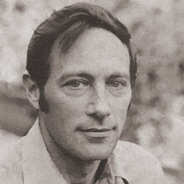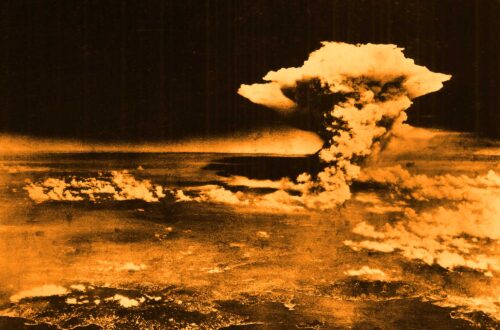by John E. Mack, M.D.
The majority of “abductees” report some degree of trauma in connection with their experiences. The intrusive events themselves may be terrifying. Experiencers feel afraid to talk about what they have undergone lest they be ridiculed and further isolated. The experiences shock their ideas of reality. Finally, they feel helpless to predict or control when the experiences will occur again or befall their children and other loved ones whom they cannot protect.
Some researchers believe that the phenomenon is primarily traumatic and harmful, that the experiencers are victims and even that the aliens, with cold indifference, are on a mission to colonize the human race and take over our planet.
But some investigators have noticed that the relationship of abductees to their experiences, and even the character of the experiences themselves, may change dramatically depending on the clinical approach that is used. If the terror is fully faced, even embraced (this requires an extraordinary holding of energy or bearing of intense distress on the part of both the clinician and the experiencer), an expansion of consciousness and a spiritual opening may take place, which includes the sense of being connected once again to a divine Source or Home. The perceived relationship with the beings themselves may shift from one of tormentor and victim to a profound, strange loving bond. Even the hybrid-making “program,” generally regarded as a consistent aspect of the abduction phenomenon (although researchers do not agree upon how literally to regard this, or in what reality it is taking place), may come to be seen as life-creating, bringing about, as one woman experiencer who had herself been “used” in this process put it, a new “balance” or “combination between us and them.”
Some investigators, while acknowledging the growth-promoting aspect of the abduction phenomenon, argue that this is a by-product of the experiencer’s struggle, the kind of growing that can take place following other sorts of traumatic experience, a testimony to human psychological resiliency. But others – experiencers and investigators alike – observe that a kind of sacred reverence for the earth and its endangered living forms, and an impatience with the apparent indifference of others to what they perceive as an urgent planetary crisis, is so frequent an aspect of the phenomenon, and such a consistent element in the communication between the beings and the experiencers, that the transformational dimension may be regarded as a central feature if not the primary “purpose” or “intention” of the phenomenon itself.
Further investigations will be needed to determine where the truth lies in this puzzling paradox.
-
 John E. Mack, M.D. was a Pulitzer Prize-winning author and professor of psychiatry at Harvard Medical School.
John E. Mack, M.D. was a Pulitzer Prize-winning author and professor of psychiatry at Harvard Medical School.
© 1997 John E. Mack, M.D.
A lightly-edited version of this piece appeared in PEER Perspectives No. 2.
O Fenómeno da Abdução por Extraterrestres: Trauma ou Transformação?
John E. Mack, M.D.
A maioria dos “abduzidos” revela um certo grau de trauma relacionado com as suas experiências. Os acontecimentos de carácter intrusivo poderão ser, em si, aterradores. Os experienciadores têm receio de falar sobre o que lhes tem acontecido, não vão eles cair no ridículo e ficar ainda mais isolados. As experiências abalam as suas noções da realidade. Por último, sentem-se impotentes para prever, ou controlar, quando as experiências irão voltar a acontecer ou possam suceder aos seus filhos e a outros entes queridos que não podem proteger.
Alguns investigadores acreditam que o fenómeno é essencialmente traumático e nocivo, que os experienciadores são vítimas e até que os extraterrestres, com fria indiferença, têm como missão colonizar a raça humana e apoderar-se do nosso planeta.
Porém, alguns investigadores notaram que a relação dos abduzidos com as suas experiências, e até o carácter das experiências em si, se pode alterar profundamente dependendo da abordagem clínica que é utilizada. Se o terror é encarado na sua totalidade, até mesmo acolhido (isto requer uma energia extraordinária ou uma tolerância a angústia intensa por parte de ambos, clínico e experienciador), poderá ocorrer uma expansão do consciente e uma abertura espiritual que inclui a sensação de estar de novo ligado a uma Fonte ou Lar divinos. A percepção da relação com os próprios seres pode modificar-se, passando de carrasco e vítima a um profundo, estranho laço afectivo. Até mesmo o “programa” de criação de híbridos, geralmente considerado como uma característica consistente do fenómeno da abdução (embora os investigadores discordem sobre até que ponto tal deverá ser levado à letra ou em que realidade está a acontecer), pode vir a ser visto como criação de vida, gerar – nas palavras de uma experienciadora que tinha sido “usada” neste processo – um novo “equilíbrio” ou uma “associação entre nós e eles”.
Alguns investigadores, se bem que reconheçam o lado promotor de desenvolvimento pessoal do fenómeno da abdução, argumentam que tal é um subproduto do conflito do experienciador, o tipo de desenvolvimento que pode ocorrer a seguir a outros tipos de experiências traumáticas, um testemunho da resiliência psicológica humana. Mas outros – tanto experienciadores como investigadores – consideram que uma espécie de reverência sagrada para com a Terra e para com os seus seres vivos em perigo de extinção – e uma impaciência com a indiferença aparente, por parte de outros, em relação ao que eles percepcionam como uma crise planetária de carácter urgente – é uma característica tão frequente do fenómeno e um elemento tão constante na comunicação entre os seres e os experienciadores, que a dimensão transformacional pode ser encarada como uma característica central, se não mesmo o principal “objectivo” ou “intenção” do fenómeno em si.
São necessários mais estudos de modo a determinar de que lado está a verdade neste complexo paradoxo.
-
 John E. Mack, M.D. foi um autor galardoado com o Prémio Pulitzer e professor de Psiquiatria na Harvard Medical School.
John E. Mack, M.D. foi um autor galardoado com o Prémio Pulitzer e professor de Psiquiatria na Harvard Medical School.
© 1997 John E. Mack, M.D.
Uma versão ligeiramente editada deste texto foi publicada em PEER Perspectives No. 2.
Translation by Helena Rabaça Küller
